
Siyaves Azeri
I am an associate professor of philosophy and the Primary Investigator of the international and interdisciplinary project titled "Philosophy in Late Socialist Europe: Theoretical Practices in the Face of Polycrisis" (Project no. CF104/15.11.2022, European Resilience Fund), which is hosted by Babes-Bolyai University.
Amidst discussions of the present-day conjuncture of socioeconomic, political, and environmental crises, our research project takes a historical approach to polycrisis and the theoretical reflections engendered by it. We contend that the under-researched theoretical practices of state socialist Europe were not mere reflections of the failure of its modernization project but specific forms of response to a state of interconnected crises in the 1970s and 1980s: the monetary and debt crises; internal crises of political legitimation and cultural pessimism; and the looming environmental crisis. Philosophical and theoretical reflections of these circumstances during state socialism should not be treated in national isolation or only as part of the history of individual disciplines. A transnational, interdisciplinary team of researchers sets out to study theoretical practices in the face of polycrisis under state socialism along four thematic clusters: 1) Organizing knowledge: Philosophy and socialist science; 2) Projecting a world beyond crisis: Futurology, political ecology, and global socialism; 3) Shaping new ways of seeing: Design, visual arts, and literature; 4) Ethics, praxis, and everyday life
Amidst discussions of the present-day conjuncture of socioeconomic, political, and environmental crises, our research project takes a historical approach to polycrisis and the theoretical reflections engendered by it. We contend that the under-researched theoretical practices of state socialist Europe were not mere reflections of the failure of its modernization project but specific forms of response to a state of interconnected crises in the 1970s and 1980s: the monetary and debt crises; internal crises of political legitimation and cultural pessimism; and the looming environmental crisis. Philosophical and theoretical reflections of these circumstances during state socialism should not be treated in national isolation or only as part of the history of individual disciplines. A transnational, interdisciplinary team of researchers sets out to study theoretical practices in the face of polycrisis under state socialism along four thematic clusters: 1) Organizing knowledge: Philosophy and socialist science; 2) Projecting a world beyond crisis: Futurology, political ecology, and global socialism; 3) Shaping new ways of seeing: Design, visual arts, and literature; 4) Ethics, praxis, and everyday life
less
Related Authors
Bill Bowring
Birkbeck College, University of London
Bill Bowring
Birkbeck College, University of London
Rogney Piedra
Queen's University at Kingston
Andrey Maidansky
Belgorod State National Research University
Iva Manova
Bulgarian Academy of Sciences
Vesa Oittinen
University of Helsinki
Isabel Jacobs
Queen Mary, University of London
InterestsView All (30)
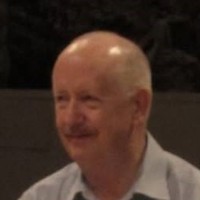

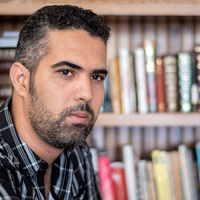


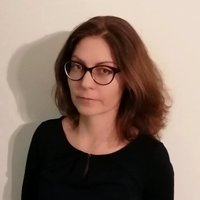

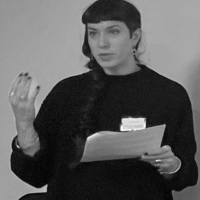

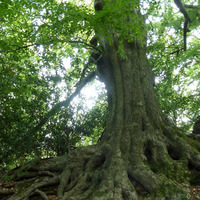
Uploads
Papers by Siyaves Azeri
всеобщее, где всеобщее означает общий генетический корень различных явлений, то есть понятие. Понятие – это «идеальное» воссоздание необходимых существенных взаимосвязей между явлениями; следовательно, философия выступает как наука об идеальном, то есть философия – это наука или метод анализа формирования понятий и понятийного мышления; в этом смысле философия - это наука вообще или теория познания. Поскольку понятия производятся только в мышлении, философия оказывается наукой о методе мышления – тем, что Ильенков называет материалистической диалектикой.
Glenn Rikowski interviewed by Siyaveş Azeri and Ali C. Gedik
Marxism & Sciences: A Journal of Nature, Culture, Human and Society, Volume 2 Issue 1 (2023), pp.178-184.
For a PDF of all of the interviews, see: https://marxismandsciences.org/interviews-rethinking-the-foundations-of-marxism-and-ilyenkovian-contributions/ and https://marxismandsciences.org/wp-content/uploads/2023/02/interviews_ms_230102107.pdf
Volume 2 Issue 1 (2023), The Foundations of Marxism II: Ilyenkovian Contributions – see: https://marxismandsciences.org/volume-2-issue-1/
Marxism & Sciences: A Journal of Nature, Culture, Human and Society – see: https://marxismandsciences.org/
Keywords: State; Political Islam; Turkey; Erdogan; Crisis
This is the Introduction written to the Turkısh translation of Lev Vygotsky's The Historical Meaning of the Crisis in Psychology published by Yordam Kitap.
всеобщее, где всеобщее означает общий генетический корень различных явлений, то есть понятие. Понятие – это «идеальное» воссоздание необходимых существенных взаимосвязей между явлениями; следовательно, философия выступает как наука об идеальном, то есть философия – это наука или метод анализа формирования понятий и понятийного мышления; в этом смысле философия - это наука вообще или теория познания. Поскольку понятия производятся только в мышлении, философия оказывается наукой о методе мышления – тем, что Ильенков называет материалистической диалектикой.
Glenn Rikowski interviewed by Siyaveş Azeri and Ali C. Gedik
Marxism & Sciences: A Journal of Nature, Culture, Human and Society, Volume 2 Issue 1 (2023), pp.178-184.
For a PDF of all of the interviews, see: https://marxismandsciences.org/interviews-rethinking-the-foundations-of-marxism-and-ilyenkovian-contributions/ and https://marxismandsciences.org/wp-content/uploads/2023/02/interviews_ms_230102107.pdf
Volume 2 Issue 1 (2023), The Foundations of Marxism II: Ilyenkovian Contributions – see: https://marxismandsciences.org/volume-2-issue-1/
Marxism & Sciences: A Journal of Nature, Culture, Human and Society – see: https://marxismandsciences.org/
Keywords: State; Political Islam; Turkey; Erdogan; Crisis
This is the Introduction written to the Turkısh translation of Lev Vygotsky's The Historical Meaning of the Crisis in Psychology published by Yordam Kitap.
It is available at this link:
http://rowzane.com/content//article=177431
Contributors include: Ian Angus, Siyaves Azeri, Vít Bartoš, Jan Černý, Joseph Grim Feinberg, Diana Fuentes, Gabriella Fusi, Tomáš Hermann, Tomáš Hříbek, Xiaohan Huang, Peter Hudis, Petr Kužel, Ivan Landa, Michael Löwy, Jan Mervart, Anselm K. Min, Tom Rockmore, Francesco Tava, and Xinruo Zhang.